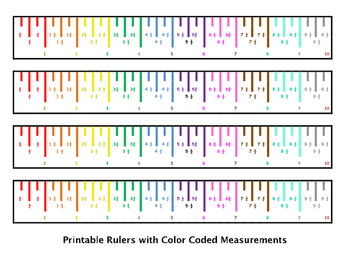
Reading a ruler is a valuable skill that you will use almost every day, both on and off the job. Computer programs like Microsoft Word and Adobe PhotoShop have electronic rulers that you can turn on to help you with the exact placement of items.
#How to read a metric scale ruler how to#
The following examples show how to read a metric scale on a ruler or tape measure. Numbers are only written every 10 and 100 millimetres. The smallest markings or divisions on the scale are 1 mm apart. Ten decimeters is a meter (or metre).Īlthough you are probably familiar with rulers, meter sticks, tape rules, folding rules, and tape measures, you will also find rulers on many machines that you use such as saws, sewing machines, photocopiers, and computer scanners. As you may have concluded from learning how to convert 4 mm to cm above, 4 millimeters to centimeters, 4 mm to cm, 4 mm to. Rulers and tape measures use the same metric scale. Ten centimeters is a decimeter (or decimetre). Ten millimeters is a centimeter (or centimetre). How to use this online ruler For the ruler to display correctly (i.e., in proportion to the actual physical size), it must be calibrated. The metric ruler is divided into millimeters (or millimetres). The maximum length of the ruler (fully visible when displayed on a sufficient screen) is 20 inches, or 50 centimeters (500 millimeters) for the metric scale option. Without measuring devices like rulers (and people who can read them) we would still be living in caves. Reading a ruler is a valuable skill that you will likely use on your job, in your hobbies, and in your personal every day life. You should really Check it OUT > Why Learn to Read a Metric Ruler? That’s all there is to measuring! Each inch is the equivalent of 2.54 centimeters.We have a new version of this game.


So if you were to rule from the start of the ruler to the third 1/4 inch mark (counting the 1/2 inch mark as a 1/4), you would have 3/4 of an inch. The 1/4 inch marks are just smaller than the 1/2 inch marks (and, coincidentally located at every 1/4 inch).If you draw a line from the start of the ruler to the line which is halfway between the 1 and the 2, that’s 1 and 1/2 inches.

This tutorial shows measurements in millimeters and centimeters. The English side of the ruler has the number 1 to 12 on one side. This tutorial shows you how to measure segments using a metric ruler.There are 12 inches to a foot, 3 feet to a yard, and 1,760 yards in a mile. Since I hold true to my American side, I will start with the English unit of measure.


 0 kommentar(er)
0 kommentar(er)
